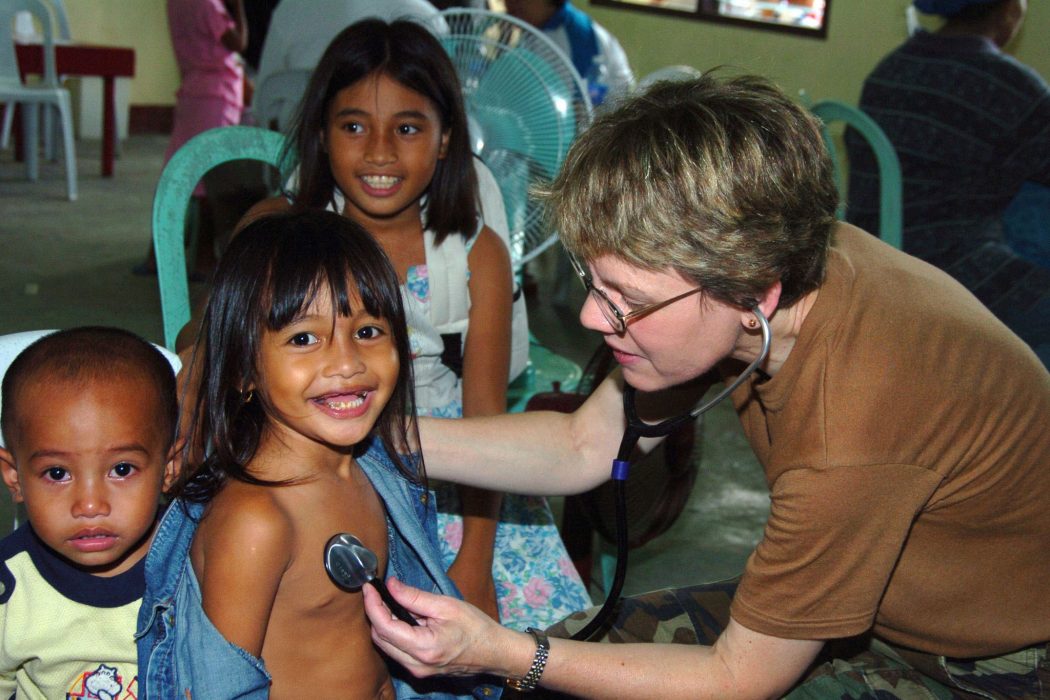“Those who write and talk about the dream of global health equity can make people think, but can not make them care. It is only through direct involvement with the poor in the developing world (or here at home) that medical students and others in the medical profession at large will find reasons to care and, ultimately, find ways to change the health of the world’s most vulnerable.”
– Dr. Edward O’Neil, author of Awakening Hippocrates: A Primer on Health, Poverty, and Global Service
In recent years, medical volunteerism has grown and has become particularly common amongst medical students. The Association of American Medical Colleges (2014) reported that 36% of medical students had participated in an international volunteer experience prior to matriculating into medical school, and 29% of graduating medical students had participated in a global health rotation or volunteer experience during medical school. During medical service trips, students witness health disparities and inequities firsthand while simultaneously broadening their medical knowledge, refining their cross-cultural communication, and improving their procedural skills. Although participating in medical service trips can be rewarding for both community members and the students, potential ethical challenges should be considered prior to travel.
Potential ethical challenges faced by volunteers include context, limited resources, and cultural/language barriers. Medical service trips take place in vulnerable populations, of which exploitation may take on many forms. Context is key to maintaining patient autonomy and beneficence. A potential harm that may not always be considered is the use of unauthorized patient photos for publicity. At medical university campuses, consent forms are requested prior to the distribution of video or photography. At medical service trip destinations, this is not always the case. A second ethical challenge to consider are the factors that come into play with limited resources. Resources may be limited compared to what the participant is accustomed to, thus requiring additional time to practice in a new and unfamiliar way with pathology that they may not be used to treating. Under new circumstances and with limited time to adapt, there is an increased risk for making mistakes, thus creating a potential hazard to patients. Other ethical challenges to consider are language and cultural barriers. Cultural and language barriers can create miscommunication between the patient and the health care provider, potentially hindering the patient’s care.
When taking on the responsibility of serving others, although challenging, there is great potential for improvement. Consider these 4 practices: preparation, reflection, evaluation, and sustainability. As a participant, it is important to not only consider your vaccinations and basic logistics, but it is also crucial to have a basic understanding of the local culture, epidemiology, health system, and services available at your site. This will give participants a starting point of what questions they need to address upon arrival. Regarding reflection, let’s say that during your medical service trip, you did not answer all of your questions; reflecting on what you have or have not accomplished and experienced is a great opportunity for growth. Reflection gives participants the time to ponder about what was done and how it could have been done better or differently. It gives the participant time to consider what microaggressions they may have experienced or projected as well as what assumptions and biases they may have not been aware of previously. The saying goes, “Give a man a fish, and you feed him for a day. Teach a man to fish, and you feed him for a lifetime.” Although medical service trips may last a few days or perhaps years, it is important to consider how their missions can be extended beyond the trips’ durations. Can local providers and community members be involved? And lastly, evaluation. Similar to examinations, evaluating the medical service trip gives insight as to what progress has been made and how can it be improved for subsequent service trips.
Medical mission trips are a great opportunity for both the participant and the patient. It is important to make the necessary preparations prior to arrival in order to be as efficient as possible, all the while considering that you are a guest in their community and you have as much to learn from them as they from you.
Stone GS. The Ethics of Medical Volunteerism. Med Clin N Am 100 (2016) 237–246. doi: 10.1016/j.mcna.2015.09.001
Nancy Lopez was born and raised in Los Angeles, California. She graduated from the University of California, Irvine, with a degree in biological sciences with a minor in medical anthropology. She received a Master's in global medicine from the University of Southern California. She has a special interest in rural and public health. In her free time, she enjoys dancing, hiking, snowboarding when the sunny Arizona weather is permitting, and spending time traveling.


